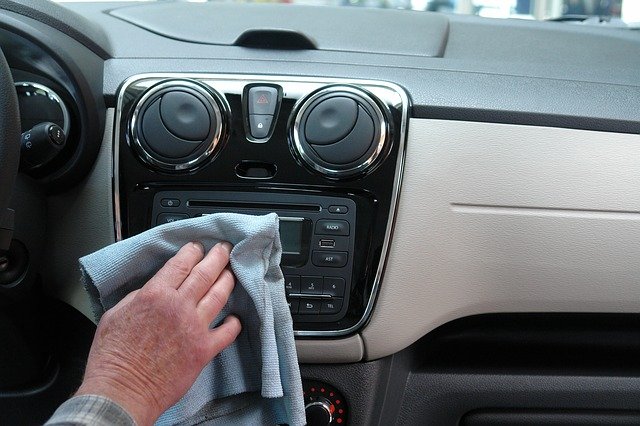 As lockdowns start to ease across the UK, more and more of us are getting back to the car. Now’s the time to take that extra bit of care to keep you and your family safe, by following our five commonsense tips:
As lockdowns start to ease across the UK, more and more of us are getting back to the car. Now’s the time to take that extra bit of care to keep you and your family safe, by following our five commonsense tips:
1. Car been standing? Check your tyres aren’t underinflated
Tyres do gradually lose pressure over time. One estimate is around 1 -3 psi a month, but obviously that’s going to vary a lot between tyres and vehicles. A few psi doesn’t sound like much, but even small drops below optimal pressure can reduce your fuel economy, affect your car’s handling and cause increased wear. Worse, underinflated tyres are more likely to overheat and fail.
2. Also, check they aren’t overinflated
At the start of the lockdown, some of us will have nipped out to their cars and put a few extra psi into the tyres. This is an excellent idea for staving off flat spots (see below). However, a few weeks down the line, it’s really easy to forget that the tyres had been overinflated.
You really don’t want to be driving around with overinflated tyres. Your tyres will wear unevenly, the car’s handling will be compromised and you’ll feel every pebble in the road. Again, from a safety point of view, overinflated tyres fail more frequently than those at the right pressure.
The solution to the first two issues is easy: just check your tyre pressure before you get moving again.
3. Be wary of tyre flat spots
Your car tyres really hate standing for long periods.
When you’re parked up for weeks on end, tyres may develop flat spots. This is when the tyre starts to harden, settling and losing its elasticity.
Flat spots often disappear when the car’s back on the move. As the tyres heat up, they regain their elasticity and any deformities in shape disappear. But this doesn’t always happen. Persistent flat spots are bad news, because they are another factor that makes sudden tyre failure more likely. In fact, they are one reason why caravan tyres fail so often: flat spots appear when the carvan is parked up over the winter months.
Flat spots can be difficult to spot when you’re parked, but look for any obvious deformities to shape and inspect the tread for any bald or highly worn patches. Be vigilant too for any persistent vibration or juddering when you’re driving.
4. Treat the car with some sympathy
It’s not just your tyres that don’t like standing idle. Mechanical systems in general tend to suffer when they are inactive. For example, gaskets and seals can become more brittle. Fuel and engine oil deteriorate. Calipers can seize.
After lockdown, of course it’s tempting to go out for a spirited drive. But thrashing the living daylights out of the car may not be a great idea.
Think of it this way: if you’d just spent six weeks laid up in bed, you wouldn’t start back at the gym by straining for a new bench press personal best. Your body would tell you to take it easy for a bit, until you knew everything was working as it should.
In the same way, after a long rest, give your car a little time to adjust. on your first couple of drives, listen out for any signs it is suffering. Does the engine sound like it normally does? Are there any unusual rattles, tapping or pinging sounds? Having a little patience and listening for any problems could save you from a hefty bill, or worse.
5. Reducing the risk of infection
Lockdown may be disappearing, but the virus is still out there and (at the time of writing), scientist estimate the true infection rate is about 8000 people a day. So, if you share the car, it makes sense to minimise the risks.
Most infections occur through droplets expelled when sneezing, coughing, speaking or just breathing, so wearing a mask is one obvious option for driver and passenger.
As infection is more likely to occur in enclosed spaces, some public health experts suggest winding the windows down when you’re driving, and others recommend doing the same between drives. Cleaning the high-touch areas will reduce the risks of transmission via surfaces.
The most effective habit to reduce risk is also one ot the hardest to remember: avoiding hand-to-face contact in the car. Doing this denies the virus one of its favourite ways of getting into the body. But given that on average, we touch our faces over 20 times an hour, that’s going to be a hard one to crack.
The BK Tyres blog carries news, views and information on tyres and related subjects. BK Tyres supplies and fits tyres throughout South Oxfordshire, including the communities of Abingdon, Didcot and Henley on Thames. As an independent, family run mobile provider, we provide exceptional levels of service and affordable prices. Contact us today.
